Hosting a stage of the Tour de France in the Czech Republic is no longer just a dream discussed behind closed doors — it’s now a real possibility.
Prime Minister Petr Fiala confirmed on Tuesday that the country is open to negotiating the chance to host the race’s Grand Départ, the prestigious opening stage of the world’s most famous cycling event.
Speaking at the National Conference on the Promotion of Sport and Movement, Fiala said, “We’ve shown that we can organize tournaments at the highest level. There’s no reason to hesitate. I can confirm that the Czech Republic is prepared to negotiate the opportunity to host the Grand Départ of the Tour de France.”
While the idea has been informally floated for years, it gained new momentum after former footballer Petr Čech — whose agency Petr Čech Sport helps organize cycling events — publicly voiced his support.
This summer, Tour legends Bradley Wiggins and Andy Schleck will be racing in the Czech Republic during the L’Etape Czech Republic by Tour de France series, further highlighting the country’s growing ties to the iconic race.
Beyond cycling, Fiala expressed interest in co-hosting major football tournaments, such as the UEFA European Championship. “I believe we would make excellent co-organizers,” he said. “Our sports development strategies should move in this direction, even if it feels like a distant goal for now.”
For that ambition to become reality, however, Czechia will need to invest in larger stadiums. Plans are already underway: Sparta Prague aims to build a new 35,000-seat stadium in Strahov, expected to be completed within the next ten years. Meanwhile, Slavia Prague is planning to expand its existing stands.
Would you like us to write about your business? Find out more
Ukrainian President Volodymyr Zelensky is back in Prague today.
His arrival has led to the closure of Prague Castle and extra police patrols across the area. Czech President Petr Pavel is expected to meet with Zelensky during the visit.
Zelensky last visited Prague in July 2023, during his first trip abroad after the war in Ukraine began. That visit was also kept quiet until the last minute for security reasons — and this one is no different.
Prague Castle is shut to the public from 11:00 a.m. to 4:30 p.m. All ticket offices, gardens, museums, and visitor centers are closed for the entire day.
Zelensky is expected to meet not only with President Pavel but also with Prime Minister Petr Fiala and Foreign Minister Jan Lipavský. His wife, Olena Zelenska, is also in Prague with her own separate schedule.
According to Czech Radio’s Radiožurnál, all signs point to Zelensky arriving today, though no official confirmation has been given. Police spokesperson Ondřej Moravčík said the visit would not affect weekend traffic but gave no further details.
The Castle will partially reopen after 4:30 p.m., but parts of the first and second courtyards will stay closed, said Castle spokesman Vojtěch Šeliga.
During Zelensky’s last visit, he arrived in Prague on a Czech government plane from Bulgaria, continued on to Slovakia, and then traveled to Turkey.
While in Prague, he met with the President, Prime Minister, and leaders of both houses of Parliament.
Today’s visit comes as Ukraine continues to ask for more support from Europe. The Czech Republic has backed Ukraine strongly since the war began, and Zelensky’s visit shows that the two countries are staying close partners.
Would you like us to write about your business? Find out more
Starting June 1, 2025, Czech teens as young as 14 will be legally allowed to take on part-time jobs during the summer holidays, thanks to a newly approved amendment to the Labor Code.
This change marks a significant shift from current regulations, which only allow work from the age of 15 and only after completing compulsory education.
The updated legislation will permit 14-year-olds who are still in elementary school to take on light work over the summer break. However, strict conditions will apply.
They can work a maximum of 35 hours per week, or no more than 7 hours per day. Those aged 15 will continue to be allowed to work up to 8 hours daily.
They are prohibited from doing overtime, night shifts, or any work between 8 p.m. and 10 p.m. Furthermore, they cannot perform tasks listed in the Decree on Prohibited Work and Workplaces. Stricter rules around rest and working hours also apply:
- Those under 15 must have at least 14 hours of uninterrupted rest within any 24-hour period.
- 15-year-olds must get a minimum of 12 hours of rest per day.
To legally work, teens will need written consent from a parent or legal guardian. The form of this consent is not regulated, so parents can provide it in their own words.
Approved job types include:
- Camp counselors and animators
- Fruit picking
- Support roles in hospitality
- Administrative assistance
- Delivering letters and light parcels
- Selling tickets
- Managing social media or websites
- Private tutoring
- Light cleaning work
The minimum hourly wage for young workers remains the same as for adults this year — 124.40 CZK per hour.
This legislative update reflects a broader effort by the Czech government to modernize youth labor laws, offer safer legal paths to employment, and align the labor market with the needs of a younger generation ready to work.
Would you like us to write about your business? Find out more
The American fast-food chain Popeyes is accelerating its expansion in the Czech Republic, announcing plans to open ten new locations across the country in 2025.
While continuing to strengthen its presence in Prague, the brand will move into new territories, with branches confirmed for Brno, Pardubice, and Pilsen.
“In most cases, these will be restaurants located in shopping centers. This year, we may also launch a drive-thru and a highway stop,” said Jiří Petrovič, Chief Development Officer for Popeyes in Czechia, Poland, and Romania. “I won’t disclose more details yet, as some sites are still under construction. But I believe we’ll make a lot of Louisiana chicken fans happy this year.”
According to Petrovič, at least six additional branches will launch by the end of the year or in early 2026.
In Prague, Popeyes currently operates three outlets. Outside the capital, fans can visit the location in Stehelčeves, near the D7 highway, and, since April 1, the chain’s latest branch in České Budějovice.
Popeyes entered the Czech market in 2023 with its debut restaurant on Wenceslas Square, where it sold over 100,000 portions in its first year. That opening drew massive crowds, with some eager customers waiting up to 26 hours to get a taste. A similar turnout was seen in České Budějovice this spring.
By 2033, the company aims to operate 60 restaurants across the country, including new locations in Central Bohemia and Moravia.
“It’s generally easier to open restaurants in food courts. This model supports faster expansion and helps us scale more quickly,” Petrovič explained. Compared to standalone venues, food court locations reduce build-out times and simplify operations. However, because each site presents different challenges, Popeyes has yet to release specific opening dates.
In Pilsen, the company confirmed a new branch will be built at the site of the former Carimex building near Rokycanská třída. The previously controversial glass building—nicknamed “Glass Hell”—was recently torn down to make room for a new Úslava Shopping Center.
“For now, I can confirm the new center will include a Billa supermarket and also Popeyes—the first restaurant of its kind in the Plzeň Region,” said Ivan Hlaváček, Executive Director of InterCora, in a March statement.
Would you like us to write about your business? Find out more
As many as 260,000 refugees from Ukraine could remain in the Czech Republic permanently within the next decade, according to a new study by Boston Consulting Group (BCG) and the Aspen Institute Central Europe.
If that estimate proves accurate, the total number of foreigners in the country could reach 1.36 million by 2035.
As of the end of March, figures from the Ministry of the Interior showed that 364,600 people were living in Czechia under temporary protection. Another 708,700 foreign nationals held various types of residence permits—bringing the total to around 1.07 million.
“We currently estimate that around 70% of Ukrainian refugees will remain in the Czech Republic after 2035,” the study’s authors wrote. However, they noted that much depends on how the war in Ukraine develops in the coming years.
The study highlights a generally positive effect on the Czech labor market, which has long suffered from worker shortages.
“The arrival of labor helped ease shortages in sectors like construction, manufacturing, and services, while also generating new consumer demand that supported parts of the economy,” the study notes.
But integration is not without challenges. The report flags several issues: language barriers, the limited recognition of qualifications, and increased pressure on the healthcare and social systems.
By the end of March, Czechia had registered 364,602 people with temporary protection. Additionally, 330,283 people held temporary residence, while 378,418 had permanent residency.
If current trends hold, the study predicts that the number of foreign residents could rise to 1.19 million by 2030 and reach 1.36 million by 2035. Of those, 260,000 would be Ukrainian refugees, many with children who would gradually enter the workforce.
“We expect that the number of foreigners in the Czech Republic will increase. We will need them. Even with that growth, our economy will still face labor shortages,” said Tomáš Wiedermann, BCG partner and one of the study’s co-authors.
Alongside those fleeing war, another 90,600 Ukrainians live in Czechia with temporary residence.
A further 111,700 Ukrainians have obtained permanent residency after meeting long-term stay requirements. The study estimates that the Ukrainian immigrant population could rise to around 237,000 by 2035.
Would you like us to write about your business? Find out more
Former Czech Member of Parliament Lubomír Volný has sparked significant controversy in Ostrava.
In his hometown, he put up several billboards featuring a photograph of himself shaking hands with Russian President Vladimir Putin.
The accompanying message reads: “Russia is not an enemy, Russia is an opportunity.” Volný shared the move on his Facebook page on Tuesday, April 8.
In his post, Volný elaborated on his reasoning, stating, “Russia is not an enemy; it is an opportunity to solve energy poverty. It is a chance for peace, and Russia is ready to discuss disarmament initiatives.” These comments reflect his long-standing admiration for Putin, with whom he has publicly expressed support for in the past.
Volný’s pro-Russian stance is no secret. He has openly approved of Russia’s invasion of Ukraine on social media, even labeling Ukrainian President Volodymyr Zelensky as a “mass murderer.” In March 2022, the Czech police investigated his statements but found no evidence of criminal activity.
The former MP has continued to share his views on social media, recently writing on X, “Europe needs more Putins and Orbáns, and fewer criminals like the EU and NATO.” His pro-Russian sympathies were also evident when he participated in a pro-Russian rally in Prague in September 2022.
Volný served as a member of the Czech parliament from 2017 to 2021. For part of his term, he was affiliated with the Freedom and Direct Democracy (SPD) party, led by Tomio Okamura.
Between 2019 and 2021, he led the “United” (Jednotní) movement. He later ran unsuccessfully for re-election in the 2021 elections as part of the Volný Bloc (now ČSSD).
It is worth noting that Ostrava has gained attention for being a hub of pro-Putin sentiment. In 2016, Nela Lisková opened the “Representative Center of the DPR” in the city and was recently given a suspended sentence for publicly calling for the “de-Ukrainization” of the Czech Republic.
Would you like us to write about your business? Find out more
Drivers working for Bolt and Uber have launched a new strike in the Czech capital, repeating a protest held just a week ago.
On that occasion, hundreds of drivers refused to accept rides, causing longer wait times and leaving many users without available cars.
This Monday, the protest has grown in scale and coordination, with two separate driver groups participating in different ways.
The first group, organized by the Lucky Taxi Association, began their strike at 4:00 a.m., planning to end it at 12:00 noon. Their specific demands have been made available through their official channels.
Meanwhile, a second group of drivers has launched a full 24-hour strike, starting at 6:00 a.m. Monday and running until 6:00 a.m. Tuesday.
This protest includes a public demonstration officially registered with Prague City Hall. Organizers expect between 500 and 1,000 vehicles to gather in the parking lot outside the Tesco hypermarket in Letňany between 10:00 and 11:30 a.m.
At 12:00 p.m., the group plans to drive in a slow-moving convoy through the city center, ending in Čestlice, a suburb southeast of Prague.
Drivers Demand Fairer Conditions
“We, taxi drivers in Prague, are dissatisfied with the current working conditions and demand immediate changes,” the group wrote in a statement distributed to media outlets.
They cite a drop in fares by 25–30% over the past three years, even as the cost of fuel, insurance, car maintenance, and housing continues to rise.
Meanwhile, Uber and Bolt continue to charge drivers commissions of up to 35%, the group claims, without paying taxes in the Czech Republic. Drivers are forced to operate as independent contractors under IČO licenses, making them responsible for 21% VAT payments on top of operating expenses.
The drivers’ key demands include:
-
Setting the official fare levels established by Prague City Hall:
-
Base fare: 60 CZK
-
Per kilometer: 36 CZK
-
Per minute of waiting: 7 CZK
-
-
Reducing commissions from 25–35% down to 15–20%.
-
Introducing a flexible commission system where fees decrease based on the number of completed trips.
-
Mandatory registration of Uber and Bolt with Czech trade licenses and VAT obligations.
-
Removing Bolt’s “Economy” tier, which drivers argue makes their work financially unsustainable.
“If our demands are not heard, we will escalate our protest with a two-day strike on April 20–21,” the organizers warned. “We remain open to dialogue and await an official response.”
Would you like us to write about your business? Find out more
Prague Zoo has officially begun construction on a new Arctic pavilion, which will feature state-of-the-art enclosures for polar bears and harbour seals.
The project was announced by Pavel Brandl, curator of mammal breeding, on Saturday during the zoo’s 94th season opening. The event included a ceremonial laying of the foundation stone for the Arctic exhibition complex.
The pavilion will consist of three enclosures: one with a watercourse for polar bears and two for harbour seals. According to the zoo’s director, Miroslav Bobek, the facility will offer visitors a unique underwater view of the bears, enhancing the educational and observational experience.
Bobek emphasised that the new pavilion aligns with the latest research on polar bear care while continuing Prague Zoo’s long-standing tradition of breeding them. The zoo has housed polar bears since 1932 and achieved a world-first in 1942 with the successful artificial rearing of a cub.
Despite these milestones, breeding polar bears remains complex. Female bears sometimes reject or harm their young, and replicating their milk for artificial rearing poses a significant challenge.
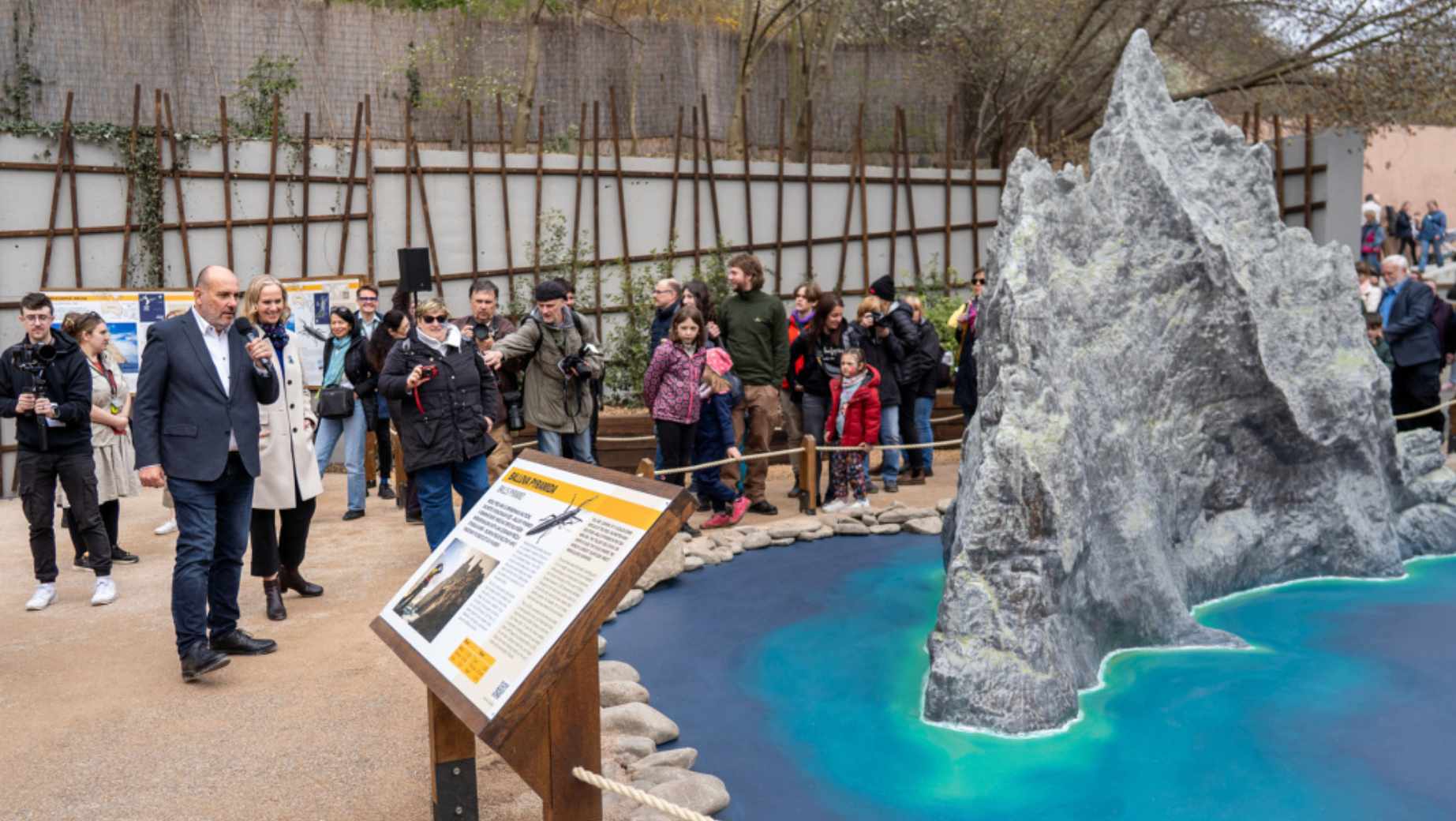
The construction is expected to take around three years and cost 755 million CZK—well below the initial estimate of over one billion CZK.
Spanning 8,000 square meters in the zoo’s northwest section near Gočárový domů, the Arctic complex will include not only animal enclosures but also visitor-friendly spaces such as a restaurant and other facilities.
Alongside the Arctic pavilion announcement, Prague Zoo unveiled a new exhibit featuring critically endangered lobsters, named Ball’s Pyramid after the world’s tallest sea stack, where the species was discovered in the 1960s.
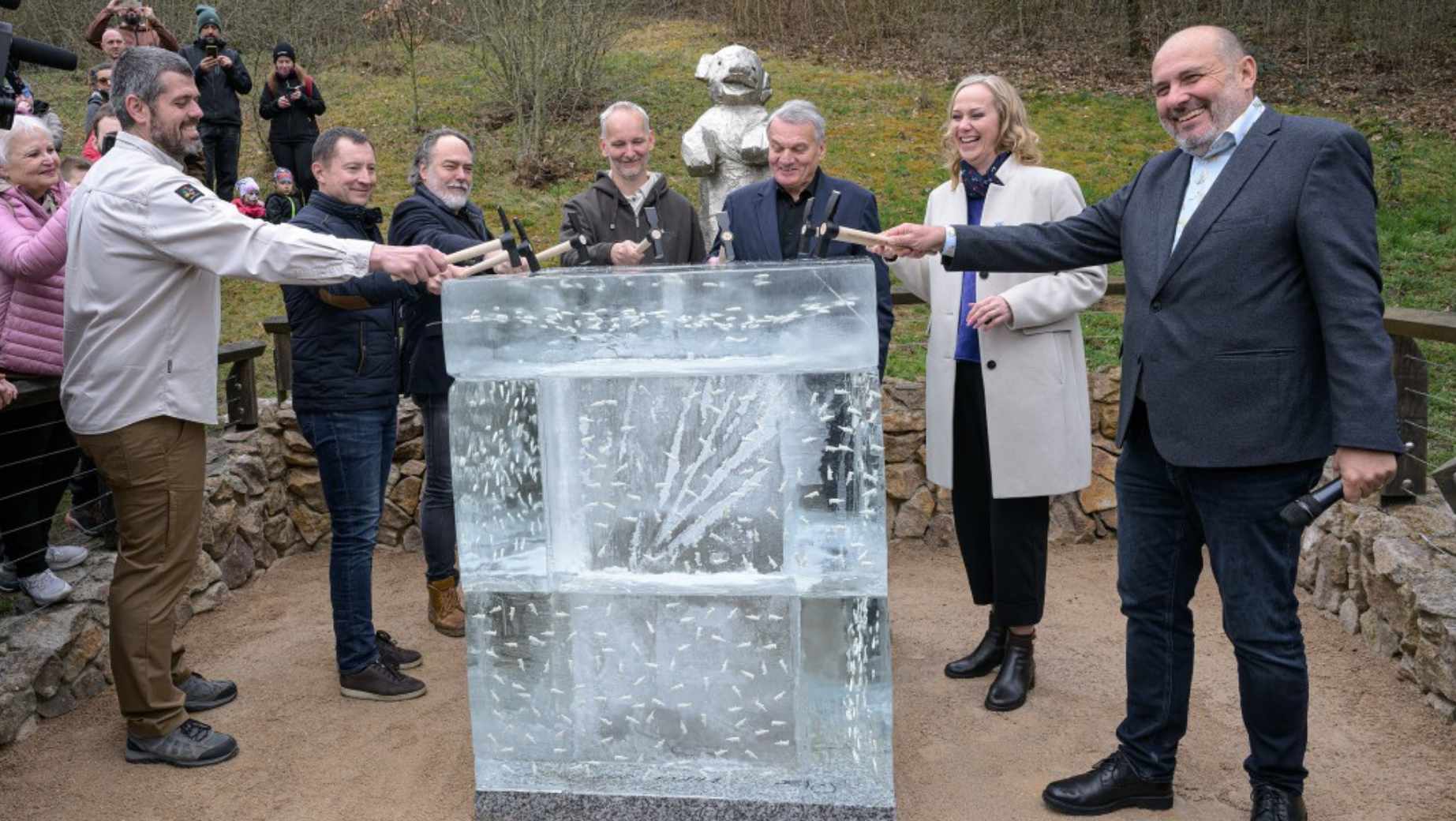
The zoo has also introduced an interactive programme for visitors, offering face painting at the Gočár Houses and Bororo Reservation, an Arctic-themed play area, and guided feeding sessions.
Guests can watch feedings of meerkats, ring-tailed lemurs, and South African sea lions, including their popular veterinary training demonstrations.
Would you like us to write about your business? Find out more
The Czech government is evaluating whether the country is ready to adopt the euro, following an assessment prepared by the National Economic Council of the Government (NERV).
This unpublished analysis, obtained by the Czech media outlet E15, explores the potential benefits, drawbacks, and risks of transitioning to the European currency.
However, economists have not yet endorsed entry into the European Exchange Rate Mechanism (ERM II)—a necessary precursor to adopting the euro. The decision will likely be left to the next administration.
A Strategic Review of Readiness
In February, Prime Minister Petr Fiala’s cabinet reviewed a report from the Ministry of Finance and the Czech National Bank assessing the fulfillment of the Maastricht criteria and the Czech Republic’s economic alignment with the eurozone. Subsequently, NERV was tasked with delivering a detailed analysis tailored to the country’s specific economic conditions.
Economist Mojmír Hampl, a member of NERV and one of the report’s authors, said to E15: “This wasn’t about whether to adopt the euro, but whether we should enter the ‘anteroom’—ERM II. The consensus was that the government must first set a concrete adoption date. You don’t enter the anteroom without intending to step into the living room.”
No Immediate Steps Expected
Despite receiving the analysis earlier this year, the government does not plan to act on its recommendations before the next election cycle.
According to Ministry of Finance spokesperson Petr Habáň, “The current government’s task is to ensure the Czech Republic is as prepared as possible for a serious political debate on euro adoption at the end of its term. The final decision should rest with the government formed after the next elections.”
Finance Minister Zbyněk Stanjura emphasized the priority of stabilizing public finances to create a path toward euro adoption. Although progress has been made, challenges remain.
Meeting the Maastricht Criteria: Progress and Challenges
While the Czech Republic fulfills some Maastricht criteria, others remain unmet. For instance:
- Long-term interest rates align with the eurozone’s requirements.
- Price stability, however, remains a hurdle. May’s inflation rate of 6.5% exceeded the threshold but is gradually decreasing.
Hampl and Stanjura agree that the Czech Republic is close to meeting these standards.
The primary barrier is the absence of ERM II membership. “Joining ERM II should be part of a credible political strategy, ensuring the transition to the eurozone is as swift as possible,” Habáň stated.
Public Opinion: A Key Challenge
The government must address the significant public skepticism toward the euro. Surveys conducted in early summer reveal that only 20% of Czechs currently support the switch. However, trends indicate gradual growth in public approval.
Economists urge the government to focus on targeted communication, especially with low-income households.
These groups are likely to feel the most immediate impact of euro adoption and often have lower financial literacy, making them more susceptible to misconceptions about the currency change.
Would you like us to write about your business? Find out more
National park Bohemian Switzerland is a great hiking destination. You might have already heard about Pravčická Gate or iconic viewpoints around Jetřichovice.
If you decide to explore more about this hiking paradise, you need quality accommodation. I tried several pensions in this area, but I can recommend only one – Krásná samota. It means “beautiful solitude,” and once you visit this place, you understand why.
Bohemian Switzerland is my favorite place where I like to take my foreign friends for hiking. Our main destination is usually a hiking trek to Pravčická gate, unique stone formation in Europe.
However, I always had an issue finding appropriate accommodation that would allow us to stay for several days and explore the area more. Don’t take me wrong, there are some hotels in Hřensko or pensions in typical Czech cottages, but there was always something that I would not completely recommend it. Until I found Krásná Samota, thanks to Amazing Places recommendation.

Two hundred years of history
Despite the fact, that pension is really a solitude outside of the civilization, we found it through villages and forests thanks to well-prepared signs. Once we arrived, we were welcomed by friendly dog Lajla and by Marcela with her little daughter Magdalenka. Michal just had a yoga lesson in the attic. Marcela showed us our double room, breakfast area with a fireplace, and a huge garden. It was about sunset time, and I could not help myself and start photographing, it was just magical.
Pension used to be a farmhouse founded in 1818. However, it deteriorated over time, especially during the communist period when private farming was prohibited. In 2013, Michal found this place and started with reconstruction. The whole building is made of natural materials such as wood, sandstone, and clay plasters.
During five years of reconstruction, Michal combined it with his regular job as a hairdresser. Today, he is not pursuing a professional career anymore, and rather enjoys life in the countryside. However, you can still take advantage of his professionalism and have a new haircut.
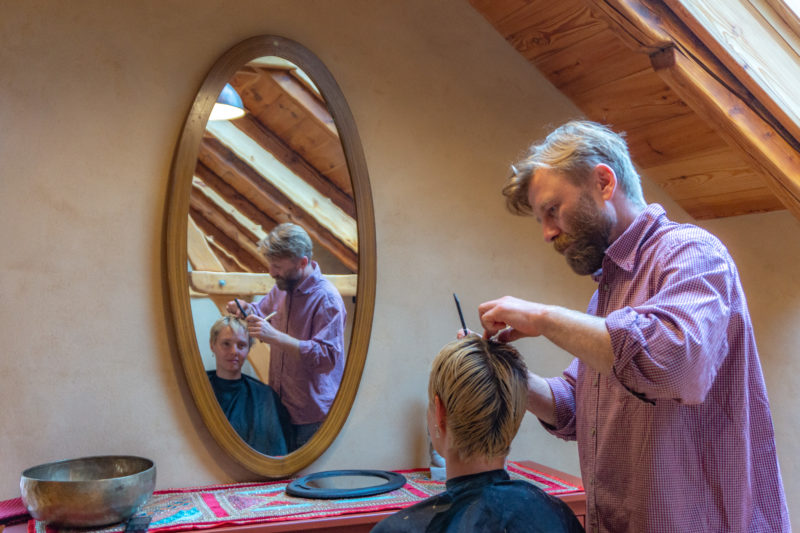
Krásná samota was finally open in 2018 when Michal and Marcela had a one-year-old girl Magdalenka. If you are wondering how they come up with this suitable name, the responsible one is the little one. Although she was not speaking at this time, she brought a book with this name at the moment when her parents were discussing the name. And here it is, the beautiful solitude.
Today, you can find accommodation in one double room or three apartments, each one with a private kitchen and bathroom. You can prepare food by yourself or have a vegetarian breakfast by the fireplace downstairs. The pension can accommodate up to 17 people.
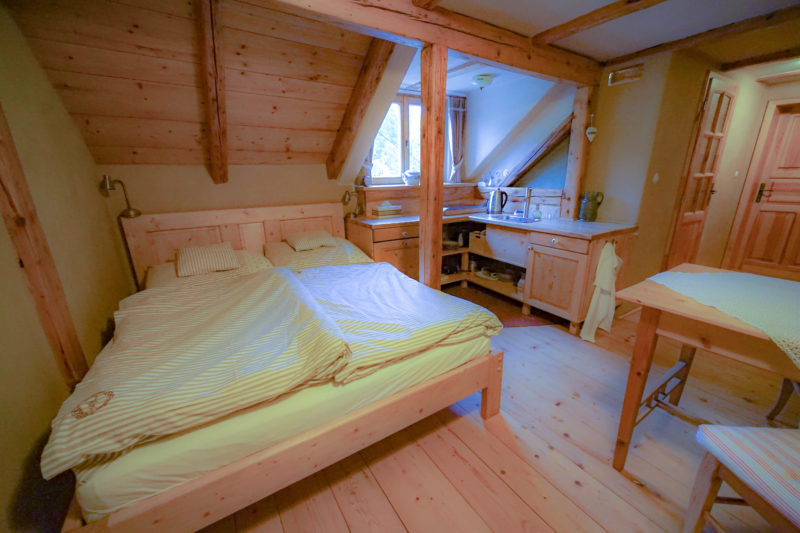
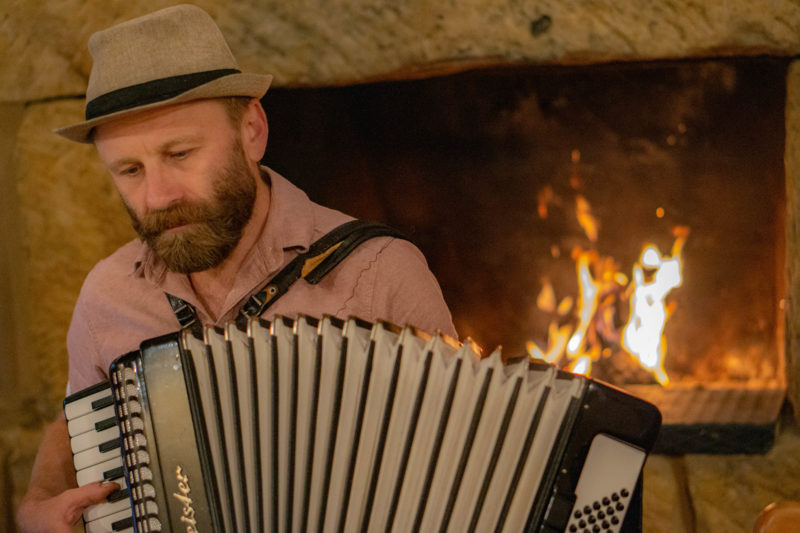
What you can do and see at Krásná samota
The pension itself is a great place for relaxation. You can explore the garden with growing flowers and vegetables, range with sheep and goats, fireplace under the stars, grill place under the shelter or hammock under the trees. In the middle of the garden is a pond with various fishes. Close by; you can even find a beehive thanks to which Michal can provide you, with homemade honey.
During the winter, the garden is still charming, but you can take advantage of the fireplace and choice of local wines, have a yoga lesson with Michal, enjoy the sauna with wellness and massages or relax with your book, anywhere you like.
Therefore, Krásná samota is a great place to relax and active holiday for the whole year. I would highly recommend hiking to Pravčická brána (about 30-minute drive to Hřensko) and hiking to viewpoints around Jetřichovice (about 20 min drive). Pension is a great starting point for bikers and cross-country skiers. If you prefer just a relaxing walk, the nearby village Chřibská is full of charming timbered houses.
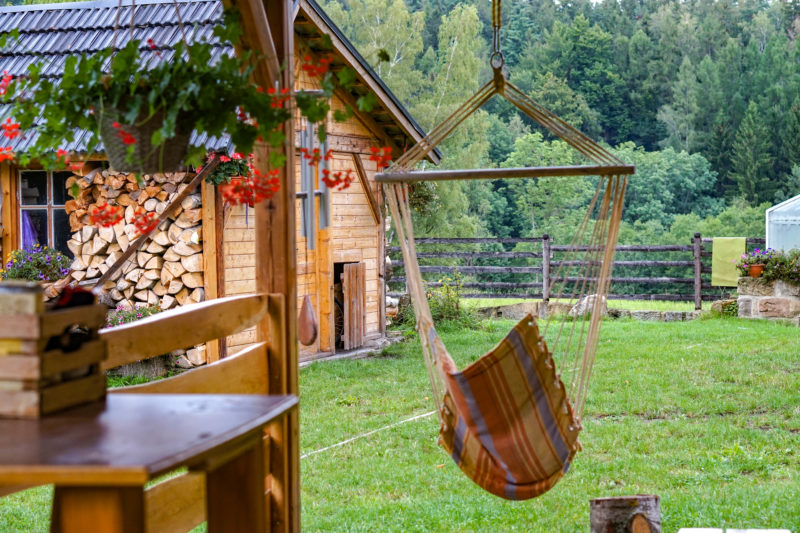
How to get to Krásná Samota
You can drive to Chřibská by highway direction to Dresden and then turn North to Česká Kamenice and village Chřibská. It is about 2 hours drive. In Chřibská, you can find several signs on the way that will take you through the forest to Beautiful Solitude…
Address: Horní Chřibská 84, Chřibská, 407 44
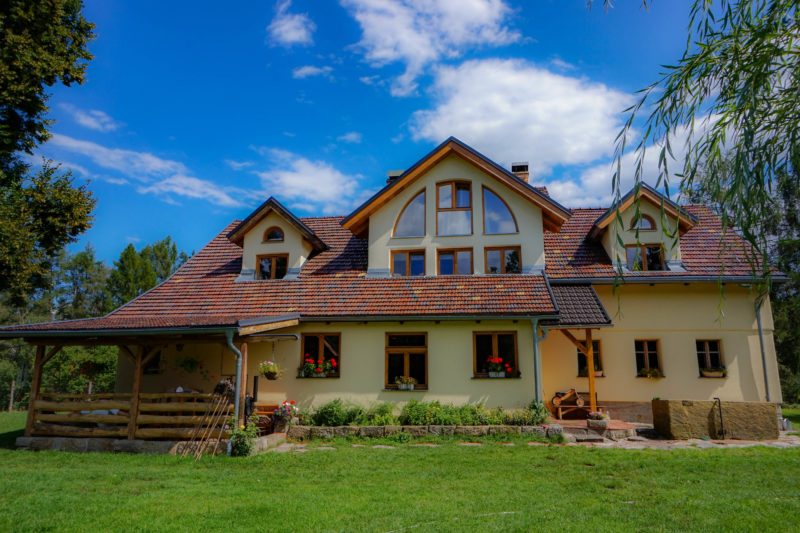
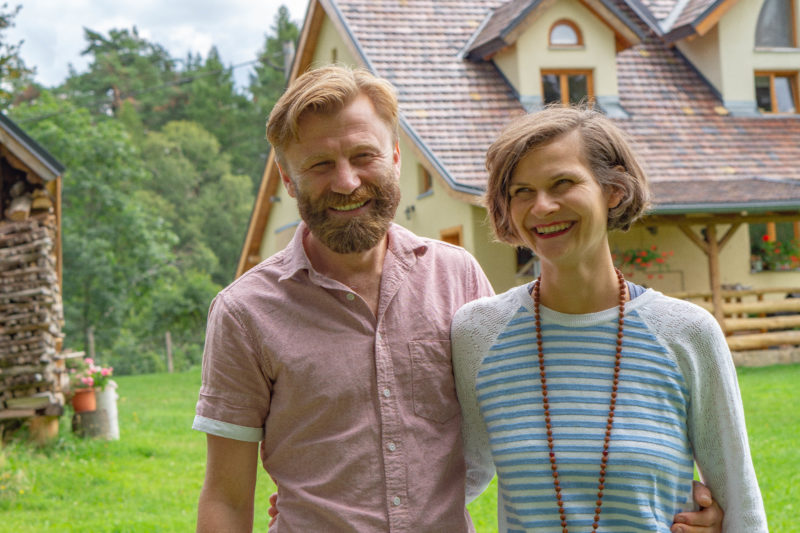
January 16 marks exactly 55 years since Czech student Jan Palach’s self-immolation at the top of Wenceslas Square that would lead to his death in hospital three days later.
Memorial events were held in Prague on Tuesday marking the self-immolation of Jan Palach 55 years ago, on January 16, 1969. Senate speaker Miloš Vystrčil and other senators laid a wreath at a memorial at the top of Wenceslas Square, where Palach, who was 20, set himself on fire in protest at apathy in the face of the Soviet occupation of Czechoslovakia.
About half-past one, Jan Palach doused himself in petrol and set himself on fire near the fountain at the National Museum in Wenceslas Square in Prague. After several minutes, those passing managed to extinguish the living torch.
The seriously burnt student was taken to the Faculty Hospital in Vinohrady, but the injuries were so serious that he had no hope of surviving.
He left a letter at the site explaining the motives of his terrible act: “As our nation is living in a desperate situation, and its reconciliation with fate has reached its utmost stage, we have decided that in this way we will express our protest and shake the conscience of the nation …ˮ He died three days later, on 19 January 1969.

Palach called himself “Torch no. 1” in his letter, giving the impression that he was a part of a larger group which in fact did not exist. But several others followed his example in Czechoslovakia and other eastern bloc countries.
“People must fight against the evil they feel equal to measure up to at that moment,” Palach said before he died in hospital on Jan. 19.
Palach’s death did not change the gradual, almost total resignation in the Czechoslovak Socialist Republic. For almost twenty years, the name Jan Palach could only be whispered in public.
His life story immediately got into “forbidden” songs or strongroom literary works. Only after a change in relations in the autumn of 1989 could historians, documentarists or artists officially and freely present it.
Palach was not the only person to protest via self-immolation. Student Jan Zajíc followed on Feb. 25, 1969, also on Wenceslas Square. In April in the town of Jihlava, Evžen Plocek set himself on fire, though this was less publicized.

A memorial bronze cross on a small rise in the sidewalk is in front of the National Museum on Wenceslas Square.
There is a square in Prague named after Palach, náměstí Jana Palacha, where the Rudolfinum concert hall; Academy of Arts, Architecture and Design in Prague (VŠUP); Museum of Decorative Arts In Prague (UPM); and Philosophical Faculty of Charles University are located.
There are also streets and places named after him in other Czech towns, as well as in Luxembourg, France, Italy, the Netherlands, Poland, and Bulgaria.
Embers of change
Jan Palach did not die in vain. Two decades later, a group called the Movement of the Children of Bohemia — a self-described “monarchist-anarchist” initiative — took inspiration from his activism and called for new protests.
These activists, like the thousands of others who would prove crucial to putting an end to Soviet rule in Czechslovakia, had been children when Palach set fire to himself in 1969. But on January 15, 1989, they took to Prague’s Wenceslas Square to commemorate his incredible protest and the sacrifice he had made.
They flocked to the square every day for a week, in what later became known as “Palach Week
The Czech Republic is imposing a new series of restrictive measures in response to a record surge in coronavirus infections.
From midnight on October 14, all restaurants, bars, and clubs will be closed until the end of the emergency. Takeaway orders will still be available until 8 p.m.
Furthermore, all schools will be closed until November 1, with the exception of schools for the children of doctors, nurses, and rescue workers. Kindergartens will remain open.
Citizens need to wear face masks at public transport stops. A maximum of six people can gather in public and a ban on drinking alcohol in public spaces has also been put in place.
“If the average reproduction number per week will be reduced to 0.8, the measures taken today will be relaxed,” added Babiš.
“We see that the growing trend has the same parameters as other countries such as Israel or the United Kingdom, where there has been the introduction of comprehensive measures. We have to do it, we have no other chance,” said Prymula, adding that “we must change the trend, otherwise the capacity of hospitals will be filled”.
A 30-day state of emergency has been implemented on October 5.
There was a new record high of 8,618 confirmed COVID-19 cases on Friday, marking the fourth straight day last week of a new record for single-day coronavirus infections.
Government data shows the Czech Republic has had 119,007 confirmed cases with 1,045 deaths, on Monday. Of them, 256 people died last week.
Po jednání vlády jsou přijata tato opatření. pic.twitter.com/PNp2Rr9eIL
— Roman Prymula (@profesorPrymula) October 12, 2020
Po jednání vlády jsou přijata tato opatření. pic.twitter.com/PNp2Rr9eIL
— Roman Prymula (@profesorPrymula) October 12, 2020
